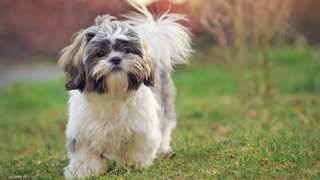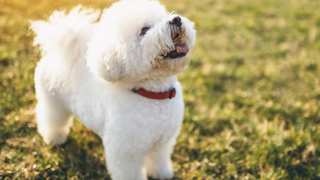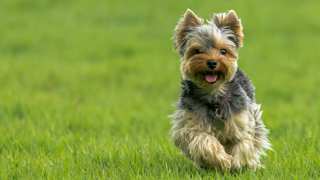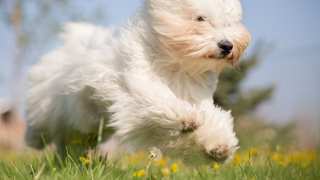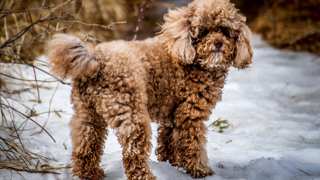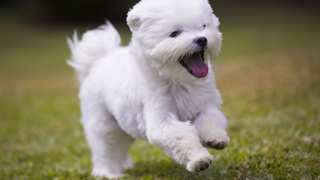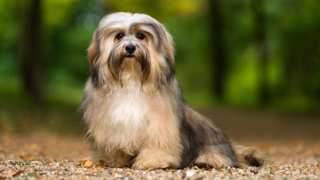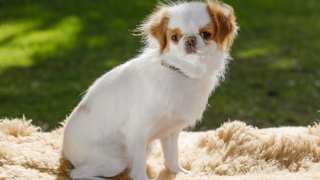The Toy Poodle diet, like every breed, will need to include food that has plenty of animal proteins and carbohydrates for energy, vitamins and minerals for digestive and immune health, and omega fatty acids for coat and skin wellness. Premium dry food, wet or canned food, and fresh meats and vegetables are all acceptable Toy Poodle food--but make sure to feed your Teacup often, as these tiny dogs are prone to hypoglycemia (low blood sugar) if not fed frequently.
But how much to feed a Toy Poodle? As you can probably guess, it won't be much! The typical adult Teacup, depending on its age and activity level, will only need ½ cup of dry food (or less) per day, divided into three meals. Toy Poodle puppy food portions are even smaller: a five-month-old Teacup, for example, will only need 5-6 pieces of dry kibble per meal--but these pups will need to be fed four times a day (not three) until they mature. For further details on feeding these little dogs from puppyhood through maturity, refer to this Toy Poodle feeding guide (and for simplicity, dry food portions are listed):
Teacup Poodle Feeding ChartDog AgeDog WeightFood TypeAmountFrequency6 Weeks0.4 lbsDry (Puppy formula)1-2 pieces4x/day3 Months0.75 lbsDry3-4 pieces4x/day5 Months1.5 lbsDry5-6 pieces4x/day7 Months2.5 lbsDry* (Puppy/Adult)8-10 pieces3x/day9 Months+4 lbsDry (Adult formula)10-12 pieces3x/day*--Around this time, transition to adult food by first mixing in 1-2 pieces of adult formula with the puppy formula. Over the course of a week, with each meal add a bit more adult food to the mixture, until the dog is eating it entirely.
Though the above-listed portions seem incredibly small, they're ample for these tiny dogs--so try and stick to them if possible. Owners are often prone to overfeeding their Teacups; a fat Toy Poodle this small will have major health problems and a significantly shortened lifespan. Try to control your Teacup Poodle's weight by feeding it on a regular schedule and avoiding "table scrap feeding." Unlike most other breeds, leaving food in your Teacup's bowl is okay due to these dogs' hypoglycemic natures--but be sure to monitor your Teacup's food intake carefully overall.
And with its small size, it won't be hard to tell if your Teacup Poodle is overweight! If the little dog is becoming fat, decrease its daily food consumption by a bit, and add an extra walk or play period to its daily exercise schedule.

